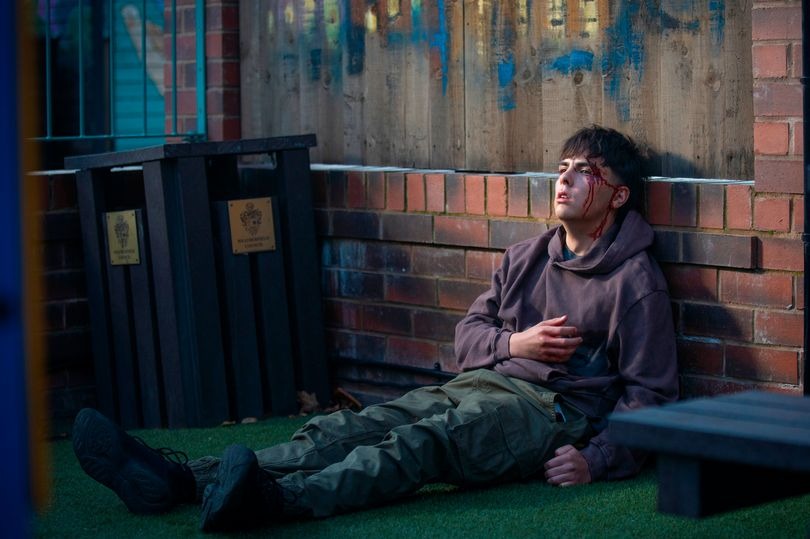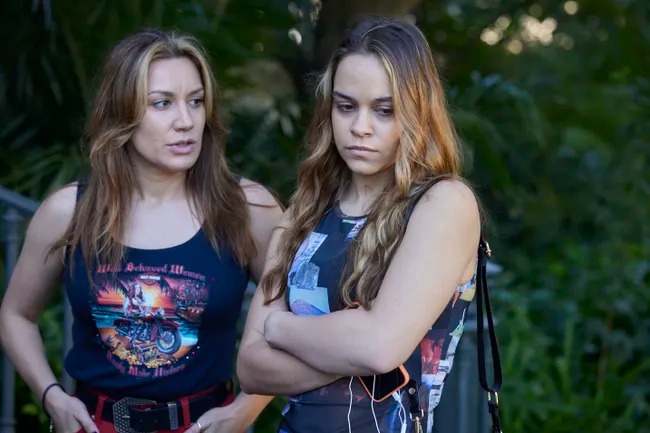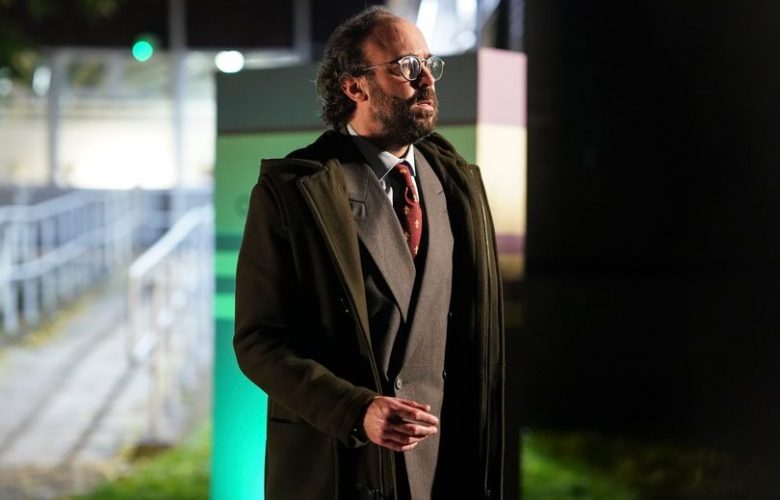‘When it happens in Manchester, we’re not even shocked anymore’
Everyone expects the usual worries from high school kids of homework, exams, friendships and relationships.
What they don’t expect is for them to be afraid in their own community – scared to be out after dark and fearful of visiting certain ‘no-go’ areas.
Yet that’s the reality for many teenagers in Greater Manchester today, all too aware of the rise in knife crime and altering their own behaviour to avoid being caught up in any violence.
It’s an issue that’s been thrust into the spotlight this week with Coronation Street’s hard-hitting storyline which saw character Mason Radcliffe stabbed to death in a horrifying attack.
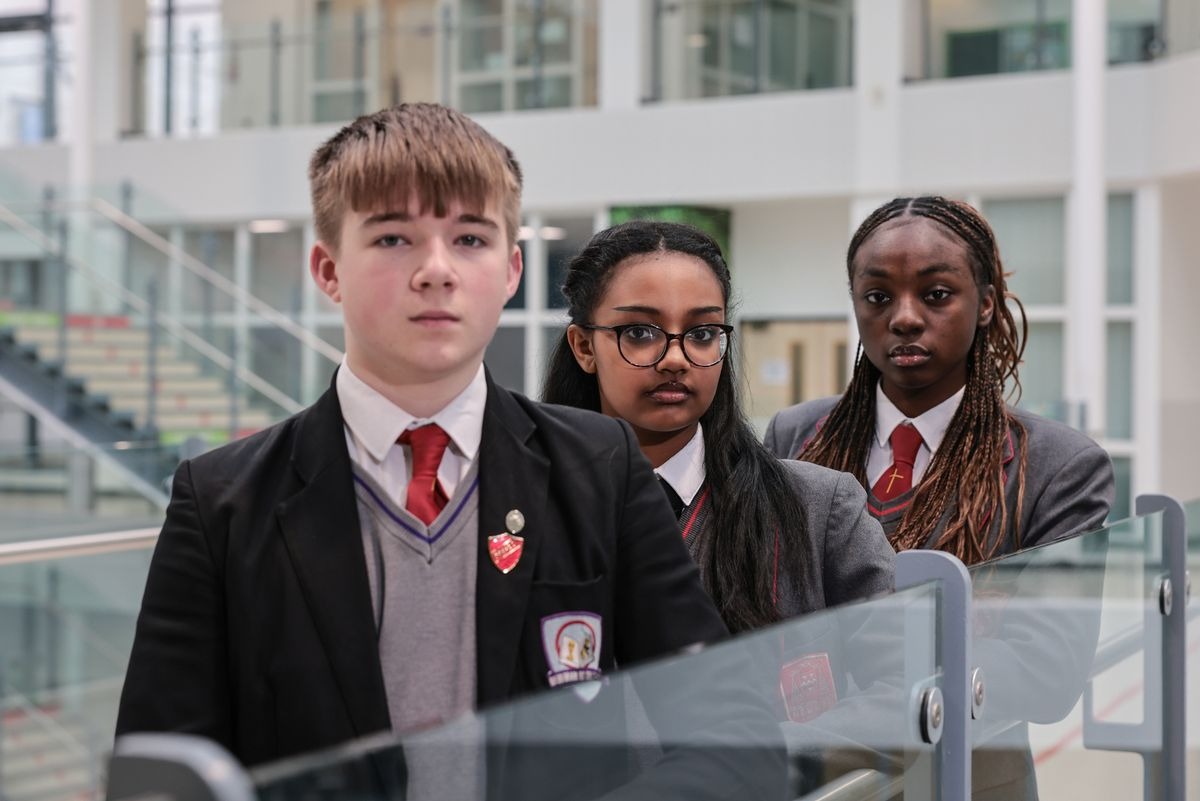
And on Tuesday, 14-year-old Kelyan Bokassa was stabbed to death on a bus in London in front of horrified passengers.
The capital has become a hotspot for knife crime, but Manchester’s figures also make for a grim read.
The city has the sixth highest rate in the country for knife possession crimes, with more than 2,000 in the last three years, a rate of 36 per 10,000 population. Salford is ninth worst, with 893 crimes in the last three years and a rate of 32.
It comes as no surprise to teenagers Samuel Fortune, Heaven Titos and Kemi Lawal, all of whom agreed to share their experiences of living in Oldham, which has seen its own rise in knife crime.
In 2020, GMP recorded 90 knife possession crimes in the borough. Last year it had risen to 193.
All students at Newman Catholic College in Chadderton, the 15-year-olds are aware of young people becoming victims of knife crime in their area.
Samuel knows of a boy who tragically lost his life and another who was threatened with a weapon at a tram stop close to home.
“He was threatened for his possessions, they wanted his wallet,” said the youngster. “They said they had a weapon, but he didn’t see it,” he added.
“Even though I haven’t been personally affected by it, it does make people scared to leave their house alone, because obviously it could happen to them.”
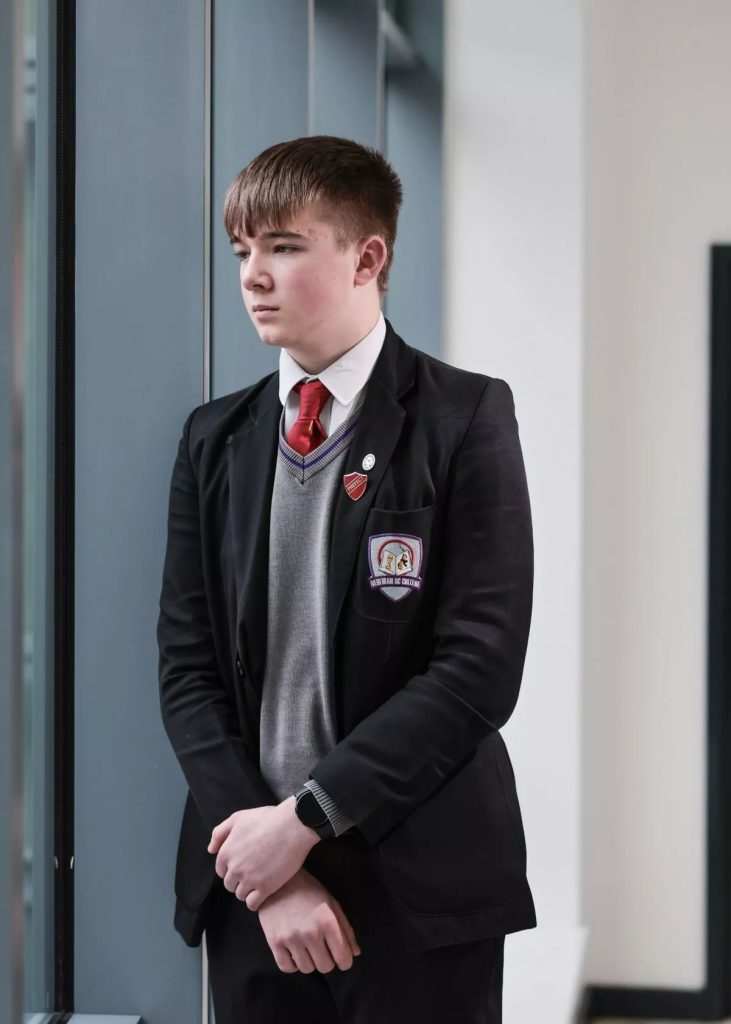
They know Manchester isn’t alone in facing such violent crimes. Just last year a group of cadets from the school were on a trip to France when a street seller forced one of them to buy a bracelet by threatening them with a zombie knife.
But they say knife crime has become so prevalent here, that it’s made them change their own habits to minimise the risk of coming to any harm.
“There’s a fear about going to certain areas, especially around Oldham, Hollinwood for instance or Newton Heath, where knife crime has happened before and is a known thing,” said Kemi. “A fear of going to places in Oldham and Greater Manchester because you know that knife crime is prominent there.”
Being outside at night is her biggest concern, ‘or in a place where violence could happen easily or at weekends in a place like central Manchester, there’s that fear’.
She said: “With my friends, we’ll only go to Manchester when it’s bright outside, we’ll go early. We know that’s what we need to do to stay safe.”
For Heaven, it’s those later walks home from school she worries about, when she’s stayed behind for an extra-curricular activity.
“I’m definitely more wary as I know there’s a higher chance of me being involved in something that I don’t want to be,” she said.
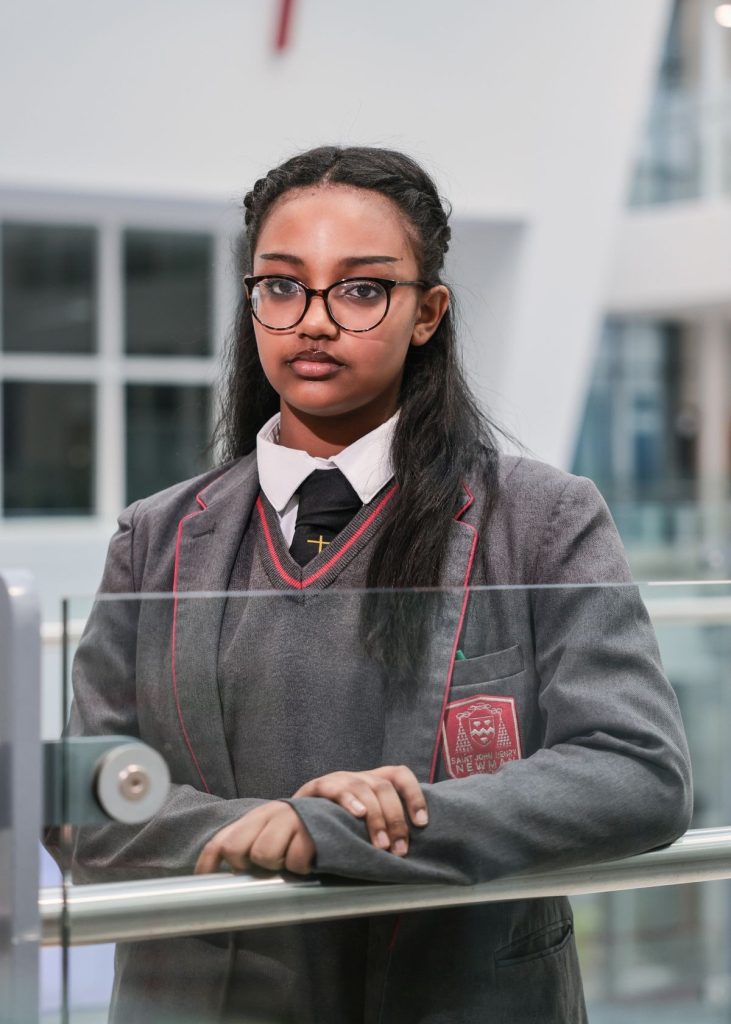
The students believe it’s that fear and the ‘glorification of violence by gang members’ – often lauded on social media – that causes people to carry knives in the first place.
“It’s very counter-intuitive, because people that carry weapons think other people are carrying weapons when most of the time that’s not the case, and because they carry weapons, most of the time it ends up them being the one that’s hurt,” Kemi said.
Heaven fears that knife crime has become so prevalent, people have become ‘desensitised’ to it.
“I feel there’s a general normalisation over gang culture and it’s not necessarily just on social media,” she said.
“People seem comfortable talking about the fact that they might carry weapons or do certain things that they should not be doing, which I also think is leading to the general fear that the public has.
“Nowadays, when we hear that someone’s been stabbed, it’s like ‘oh there’s another stabbing’, we’re not always as shocked as we should be.”
They all believe it’s too easy to access weapons, both locally and from ordering online with minimal age verification.
“It’s way too easy to get your hands on something that can cause so much harm,” said Samuel.
And while they feel laws are ‘effective to a point’, they say it’s the ‘root cause of it’ that needs addressing, the gang culture that exists leading young people to fear they need to carry a weapon in the first place.
They say parents need to play a key part in educating their own children about knife crime and have all had discussions with their own families on the issue.
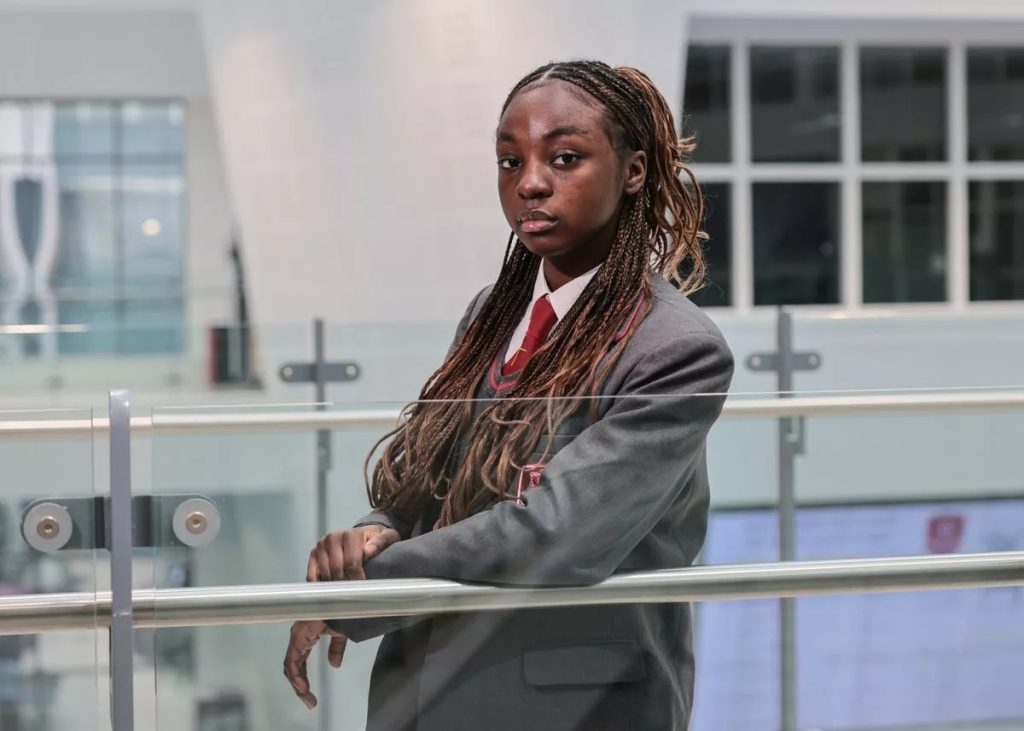
“When we’re brought up, with things like gang violence, it’s drilled into us to be aware of certain people and surroundings,” said Samuel.
“They always said to me that if someone does threaten you, saying ‘give me your phone’, then give them it and then report it, because you can always get a new phone, you can’t get a second life.”
Following the tragic storyline in Coronation Street, the mum of a boy who was stabbed in a Greater Manchester park spoke out earlier this week to praise the soap for highlighting the issue.
Her son was just 15 when he was attacked by two young boys who tried to steal his mobile phone. One of them was just 11.
The mum-of-three, who did not want to be identified, believes that education about knife crime needs to begin early and would like the episode to be shown to youngsters to make them ‘think twice’ about carrying a knife.
It’s a view echoed by Jade Akoum, the sister of Yousef Makki, who died after being stabbed by Joshua Molnar in Hale Barns, Trafford, in 2019. The pair were both 17-year-old Manchester Grammar School students at the time.
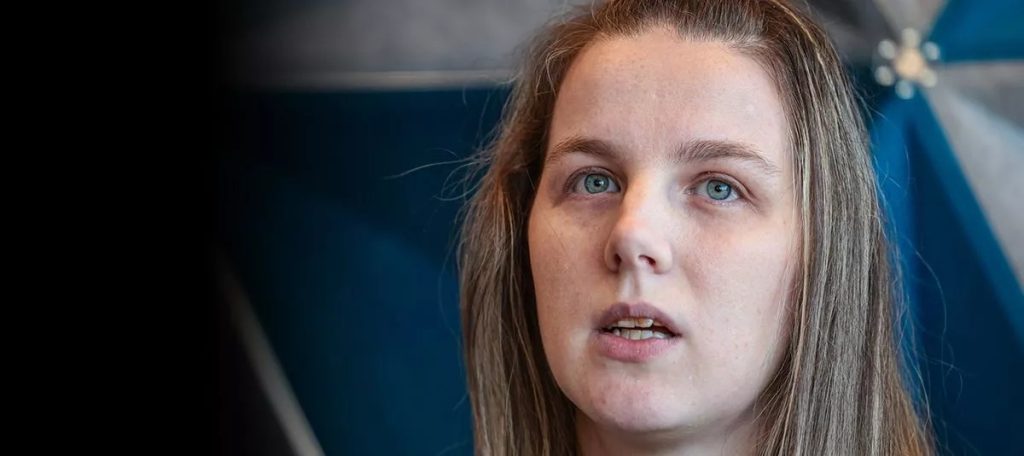
“I think it’s fantastic that TV shows are showing the reality of knife crime,” said Jade. “I know a lot of people might not want it to be on the programme, but it’s so important that it is. You never know who is watching and who it might have an impact on.
“I agree with the mum in the sense that it should be shown to young people in schools. The last year of school would be ideal before they begin their transition into high school where social pressure comes into things. Younger than that, I would worry it was exposing them too much.”
A mum to four boys, aged 16, seven, six and four, Jade said she didn’t feel able to watch the heart-breaking episode.
“I haven’t been strong enough to watch it, as I am sure many other victims of knife crime haven’t, as it brings us back to that dark traumatic time, but I have seen clips online,” she said.
“Seeing the scene where he is scared and being reassured really hit home for me as with my brother we wondered the same things – if he was scared, if he was asking for our mum – and I think these scenes will hit home for anyone who is parenting a teen at the moment because it just shows how one action can lead to such devastating consequences.
“I also know not all of the public are happy with it being shown and to a certain extent I get it, but I also think it’s so important to show the reality of these situations and if it prevents one person from going out with a knife then it will be worth it.”
Sadly the experiences of Newman Catholic College students come as no surprise to headteacher Glyn Potts, but he knows it’s a widescale problem and not limited to Oldham.
“Young people, not just those at Newman, can speak with real fear and detail about the risks of knife crime and the steps they feel they must take to protect themselves,” he said.
“As adults, we often forget that the risks to young people are amplified and complicated by social media. How can it be right that in 2025, in England, we have young people aware of ‘no-go areas’ or behaviours that they must adopt to interact with the world. This is endemic in society and we must address it if we are to avoid more tragedy and a generation of young people living in fear.”
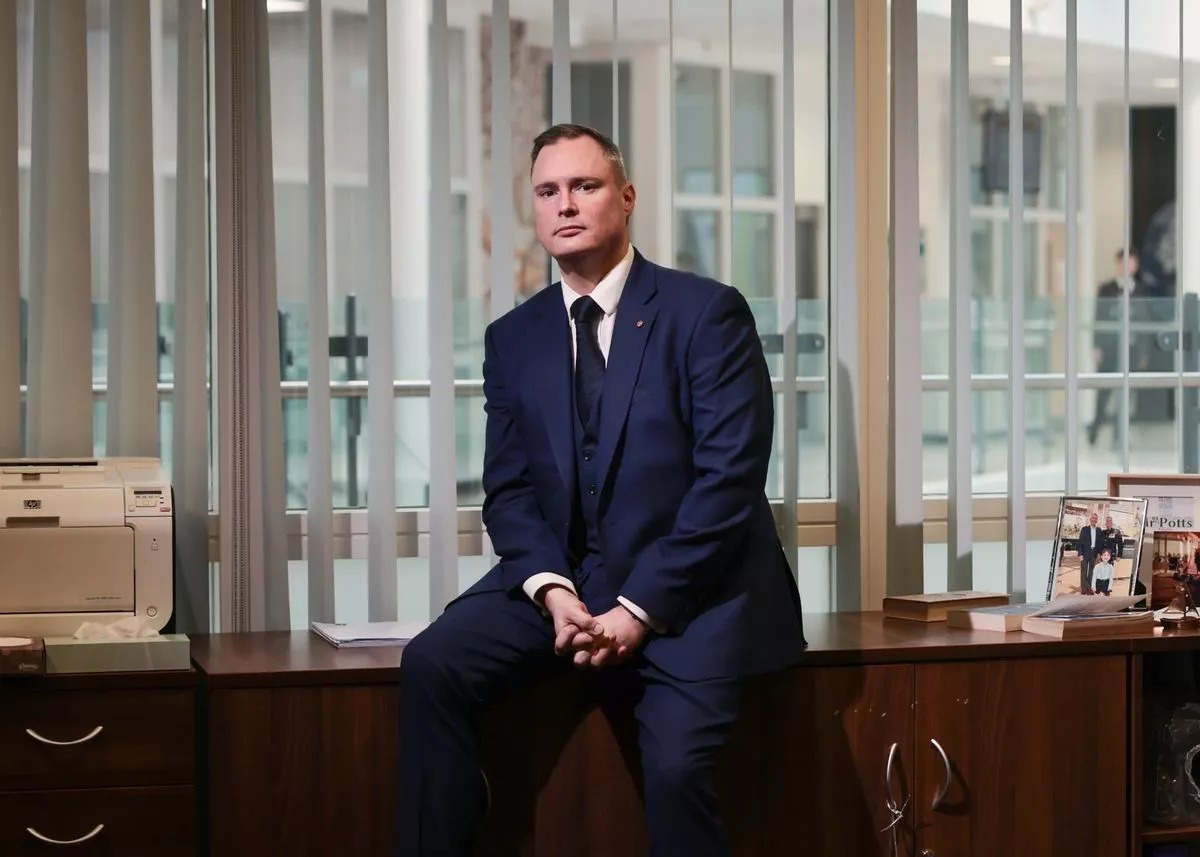
He says Coronation Street has ‘highlighted the tragic impact of knife crime and that it can happen in any area of the country and to any young person’ and believes the government needs to step up its support to schools, youth services and other partners.
“The erosion of safe, appropriate youth provision; the pressure on external services such as the police and social care is of such an extent that some young people feel the need to carry a knife in order to protect themselves,” said Mr Potts.
“We have to increase the urgency to address this and to provide safe spaces for young people beyond the school and home, together with targeted support for those who may be susceptible to carrying such weapons. Social media plays an active part in glorifying knife crime and general violence. The online safety bill should be cognisant of this and the risks that young people are exposed to.”
He praised the work of the multi-agency Violence Reduction Unit at Greater Manchester Combined Authority, which provides dedicated resources and support to aid schools in raising the risks of knife crime, supporting the reporting of it and offering bespoke interventions towards young people at risk.
The school’s curriculum includes lessons on the topic throughout every year group and multiple times across the year through personal development lessons and dedicated external speakers, often with real world tragic knowledge of the impact of knife crime.
